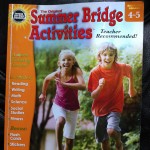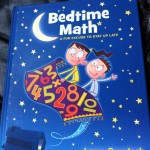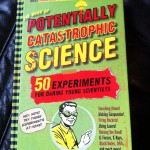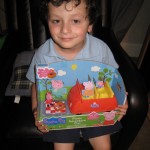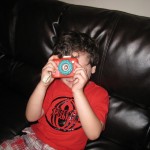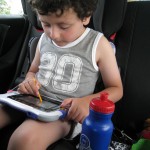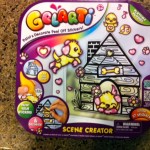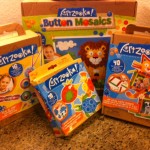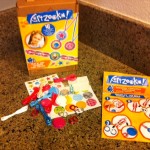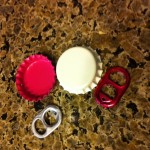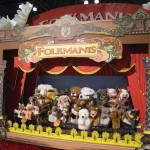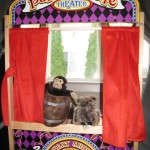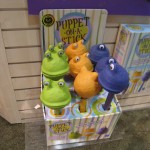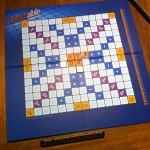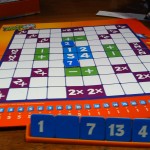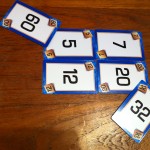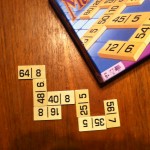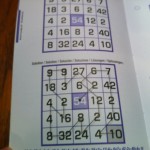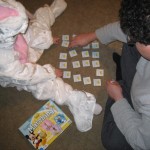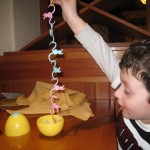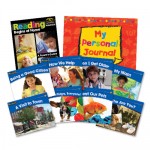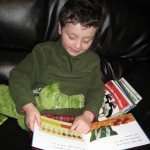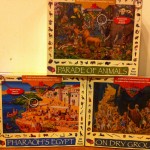What’s the first thing that pops into your head when you think about making something out of paper—Origami? Paper airplanes? Papier-mache? For most of us, those were activities we did in Kindergarten or in an after-school crafts program. But creating things from paper is definitely not just for kids. This week, the Parents@Play team had a chance to try out two books that made us look at paper—and what you can make out of it—in a whole new way. We produced some very cool projects. Better yet, we discovered an amazing new way for kids and parents to spend some fun, creative, entertaining—and electronics-free—time together. And we’re confident you’ll be able to do the same with your family.
Paper Made! 101 Exceptional Projects to Make Out of Everyday Paper, by Kayte Terry (Workman Publishing)
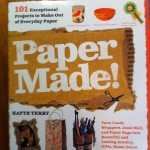 Warning: if you read this book, you may never throw away another newspaper, magazine, empty cardboard box, bag, piece of torn wrapping paper, napkin, or candy wrapper as long as you live.
Warning: if you read this book, you may never throw away another newspaper, magazine, empty cardboard box, bag, piece of torn wrapping paper, napkin, or candy wrapper as long as you live.
Let’s get this out of the way right now: Kayte Terry is a genius. The things she creates from stuff that otherwise would have ended up in landfill or a recycling bin, are absolutely amazing. And if you’re willing to put in the time, you’ll learn how to make equally amazing things by folding, cutting, gluing, painting, molding, weaving, twisting, braiding, shredding, crumpling, and even sewing ordinary pieces of paper and cardboard.
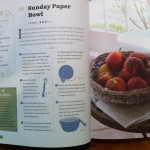
Projects include a fruit bowl from braided newspaper, a place mat from woven strips of lottery tickets, a book bag made out of an actual book, a lampshade made from decks of cards, jewelry, picture frames, tables, photo albums, and a lot more. Any or all of these can be done by one person alone. But they’re a lot more fun to do with someone else—or a group of someone elses.
The New World Champion Paper Airplane Book, by John M. Collins (Ten Speed Press)
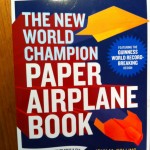 Unless you’re an aeronautical engineer, forget everything you ever learned about making and flying paper airplanes and let John Collins show you the way. As the proud owner of the Guinness World Record for the longest distance traveled by a paper airplane (226 feet, 10 inches), Collins really knows what he’s talking about.
Unless you’re an aeronautical engineer, forget everything you ever learned about making and flying paper airplanes and let John Collins show you the way. As the proud owner of the Guinness World Record for the longest distance traveled by a paper airplane (226 feet, 10 inches), Collins really knows what he’s talking about.
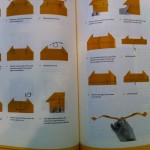 He starts the book with a kind of flight-school, explaining the physics behind flight, how different shapes and types of wings affect lift, what rudders and flaps do, and even how to throw for the best effect. He then gets into folding 101, starting with the most basic folds and working up to complex ones that may take quite a few attempts to master. You could skip all this and dive right into the airplane making, but your aircraft won’t be nearly as good.
He starts the book with a kind of flight-school, explaining the physics behind flight, how different shapes and types of wings affect lift, what rudders and flaps do, and even how to throw for the best effect. He then gets into folding 101, starting with the most basic folds and working up to complex ones that may take quite a few attempts to master. You could skip all this and dive right into the airplane making, but your aircraft won’t be nearly as good.
Once you’re ready, you’ll find step-by-step, illustrated instructions for how to build the most amazing paper airplanes ever. We’re not talking about basic airplanes that you make in less than a minute and toss across the room. The planes you’ll learn about in this book might take half an hour or more of very detailed work to make. But instead of having a craft that stays airborne for a few seconds and then crashes, you may be able to build one that will float around for minutes at a time (at least that’s what Collins says. Some of his “follow foils” stayed up for that long. The longest we could manage was about 30 seconds).
All in all, a perfect activity for very patient parent-child teams ages 10 and up.
###

